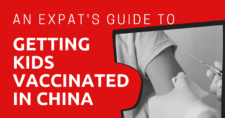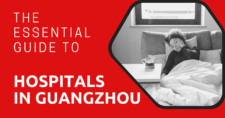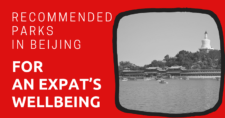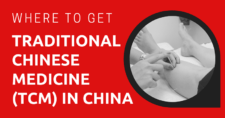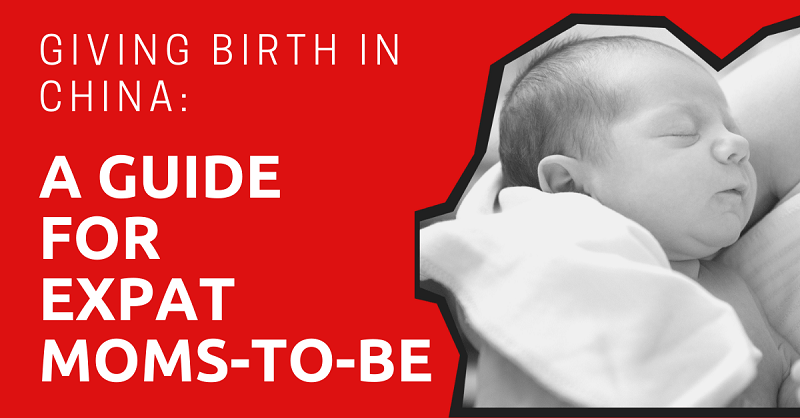
Giving birth can be a worrying prospect at the best of times, as well as an exciting one. Apart from the pain involved, there are risks to the health of both mother and baby. For the experience to be fulfilling and joyous, it helps for Mom to feel safe and in control.
These challenges are exacerbated in a foreign country, and China is no exception. Firstly, there is the issue of language. If you are unable to communicate with medical staff and express your needs clearly during childbirth, this can be a serious problem. Unless you or your birth partner is fluent in Chinese, you will need your midwife or doctor to speak English.
A second issue is that although public hospitals in China are clean and well-equipped, with highly trained staff, they can feel impersonal. If you have a minor condition and just want to be seen and get out, then being shunted round from department to department like a production line is speedy and efficient. However, for a life-changing event like childbirth, you may want care which treats you more as an individual.
Thirdly, in China there are grounds for concern about privacy. It is far from unknown for an intimate examination to be interrupted by an impatient patient, demanding to be seen immediately. Some people will stick their head round a curtain out of curiosity on hearing a foreign language spoken. These habits are less common in the younger generations who have not grown up with communal living, but some older people will have little respect for western concepts of personal space.
Despite all this, many women from the international community have given birth in China without problems, and often have chosen to have a second child there. As with everything else in expat life, a little research and preparation can help smooth the way, and for an important life experience like this, careful planning is essential.
This article will take approximately 21 minutes to read. Don't have the time right now? No worries. You can email the ad-free version of the article to yourself and read it later!
Disclaimer: This article may include links to products or services offered by ExpatDen’s partners, which give us commissions when you click on them. Although this may influence how they appear in the text, we only recommend solutions that we would use in your situation. Read more in our Advertising Disclosure.
Contents
Learning You are Pregnant
If you think (or hope!) that you are pregnant, the first step is to get a pregnancy test. These can be bought at any pharmacist, and are not expensive, costing RMB 40-50 for two tests. You can even get them from Taobao! You may want to buy a brand name from your home country. This is not to suggest that Chinese brands are unreliable, but because you will be able to find online instructions in your own language.
If the test indicates you are pregnant, you will need to confirm it with a doctor. (Home pregnancy tests are 99 percent accurate, but this still leaves some scope for error.) This can be done at any hospital with a maternity department, but is likely to involve some form-filling in Chinese. Depending on your Mandarin level, you will need to consider whether to attend an international hospital where English-speaking staff can help you.
Public or Private?
One of the most important decisions you will make is choosing the hospital for your prenatal checkups and where you will eventually give birth.
Depending on where you live in China, you are likely to be choosing between an international hospital, a Chinese private hospital, or the public health system. The maxim that “You get what you pay for” very much applies. Broadly speaking, international hospitals offer the best experience but are most expensive, while the public system is cheapest but may be a challenging experience. Whether you give birth in a deluxe private room, or a noisy, crowded ward, depends on your budget and your insurance package (see below.)
International private hospitals will offer an experience more like that you would expect in the west. Medical staff will all speak English, and will have more time to answer your questions and address your concerns. Rooms are more likely to be private, or shared with one other woman at most. Facilities and equipment are as good as you will find anywhere in the world.
The Chinese public system has up-to-date equipment and highly trained staff (in the big cities at least.) However the cultural differences are significant. Doctors do not put a high priority on “bedside manner”. They are less likely to speak English, and have little time to chat, even if your Mandarin skills are up to it. They will make decisions about what is best for you and your baby, and your personal choices play little part.
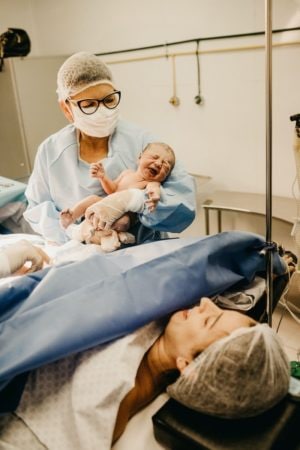
The environment too may involve some culture shock. You are likely to be on a large ward with many other expectant moms. Male partners are not allowed in, and will not be present to support you at the birth itself. Female relatives supply much of the care which nursing staff would provide in the west, including bringing in food; most Chinese hospitals don’t provide meals to patients. You may feel that you are surrounded by strangers who have little regard for your privacy.
Pitched in between the public system and the big international hospitals are Chinese private providers. In the past these have had a poor reputation, but there are new players in the market which are raising standards. They offer a mid-priced option, providing more privacy and individual attention than the public system, while not necessarily reaching the gold standard of the top international organizations.
Harmonicare specializes in services for women and children, and has hospitals in most major cities, including Beijing, Guangzhou, and Chongqing (though not Shanghai, at the time of writing.)
Women from the international community who have given birth in China often report that the most important consideration is to find a consultant or doctor whom you trust, and who shares your view of how you want your childbirth experience to be. With this relationship in place, everything else becomes much easier.
Hospital Tours
The best way to assess the options available is to take a tour of the hospital. Most international and private providers will be happy to show off their facilities to a prospective customer. Public hospitals are very unlikely to offer this service, although it’s always worth asking.
Delivery Options
In a Chinese public hospital, the doctor will make decisions about the birth which you will be expected to comply with. Caesarean sections are very common (around 35 percent of births, compared to a WHO recommended target of 15 percent), with any slight complication usually seen as a justification for medical intervention. Caesarean rates are also increased by high numbers of elective C-sections; certain dates and times of year are viewed as either lucky or unlucky, and many Chinese women will arrange to give birth on a day viewed as auspicious.
If you do give birth naturally in a public hospital, this will typically be in an all-female ward: male partners will have to wait outside.
In a private or international hospital, your doctor is more likely to respect your birth plan and your wishes for your type of birth. Make sure that you have made your request very clear and that your partner is also in communication with your doctors to make the right decisions if you are unable to at any time in the process.
If you want to give birth at home…then unfortunately, the simple answer is you can’t. Home births are illegal in China, where parturition is seen very much as a medical issue.
Costs and Insurance
Costs of medical services in China are significantly lower than in the US, though if you come from a country with free healthcare such as the UK, you may get a shock when presented with the check.
Birth Cost Estimates
- Public hospitals: RMB 10,000 (USD 1,500) for prenatal checks and another RMB 2000-5000 for delivery
- International or private hospitals: RMB 20,000 (USD 3,000) for prenatal care, over RMB 50,000 (USD 7,000) for a natural delivery and as much as RMB 100,000 (USD 15,000) for a C-section.
A good insurance package can bring private care within the reach of most expats. However it’s important to check the small print, particularly if you are considering having a child. Maternity services are not included in all packages, and “co-pay” is common, where you will be expected to meet a percentage of the costs yourself. Many insurers also offer helplines, so you can call English-speaking staff for advice and support. For more information, see our article on medical insurance.
International and Private Hospitals Offering Maternity Services
Many expats in China will choose to have their baby in one of these world-class facilities in the major Chinese cities. For those in southern China (Guangzhou and surrounding cities), making the trip to Hong Kong for the birth of a child is another possible choice that guarantees the best quality medical care.
Beijing
Beijing United Family Hospital and Clinics (BJU) are probably the best-known international facilities in Beijing, they have a strong reputation and high prices to match. Top of the list of “high-cost providers”, only the best insurance plans cover their services. Expect to pay well over RMB 100,000 for a natural birth package at BJU.
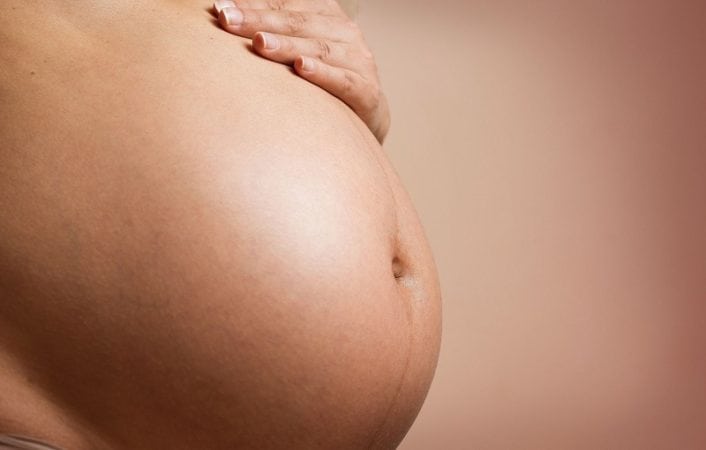
Beijing Oasis International Hospital is a relatively new hospital in Beijing’s 798 Art District. They cater to well-insured expats and wealthy Chinese families, and the impeccable environment will ensure a comfortable maternity experience. They are about 20% cheaper than BJU, coming in at around RMB 60,000 total for a natural birth including prenatal and postnatal care.
In the same neighbourhood as Oasis—and the same price range—Amcare Women’s and Children’s Hospital specializes in maternity care. Having only OBGYN specialist doctors is definitely a plus.
Beijing Antai Maternity Hospital is unique in being the only hospital in Beijing equipped for water births. They are also slightly more affordable than those listed above at under RMB 30,000 for a birth package.
Shanghai
Shanghai United Family is a part of the massive United conglomerate of clinics and hospitals. As with the Beijing branch listed above, expect high prices so make sure you are covered before you choose them. They have hospitals in Hongqiao and Pudong, and several smaller clinics.
Some smaller specialists have clinics which share space with larger facilities for birthing needs. Redleaf Hospital is a specialist women’s and children’s hospital, located within American Sino and Ferguson Women’s Health Clinic is a small specialist clinic in Shanghai RICI Hospital.
Shanghai East International Medical Center (SEIMC) is an international section of the prestigious Shanghai East teaching hospital. This is an example of a local hospital having a nicer area for those who can pay a bit more. Natural birth packages here can start at around RMB 50,000.
Raffles Medical Centre is a nice option for expectant mothers who need prenatal and postnatal care. They do not have facilities for delivery, but will help with arranging your bi hospital options.
Always do your research and read reviews of hospitals in China. For example, the American Sino Hospital in Shanghai specializes in maternity care and is a popular choice, but it has worryingly attracted a number of negative reviews online.
Smaller Cities in China
If you are in a smaller Chinese city, you will find your options limited as far as international or private hospitals and clinics. You will also find the public options a bit daunting. It is common for people who have the means to do so, to travel to larger cities to find the right maternity care for them. Here is an overview of private hospitals and clinics in other parts of China.
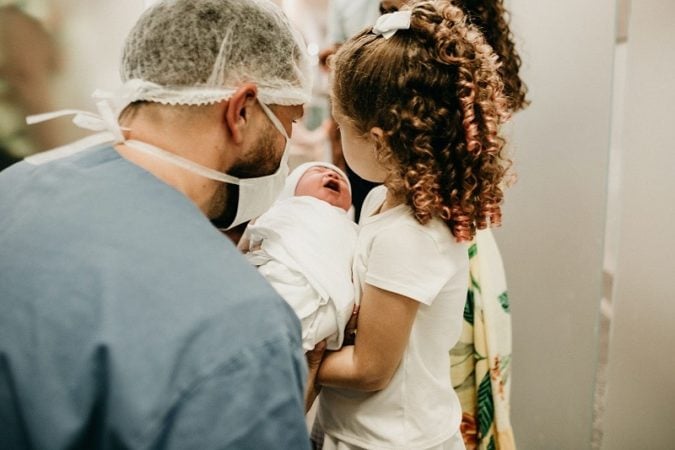
As well as Beijing and Shanghai, United Family Hospital has a presence in Guangzhou, Tianjin, Qingdao, Bo’Ao, and Shenzhen. Another private option for prenatal planning and OBGYN in Guangzhou is the Eur Am Medical Center.
Raffles Medical Group can also be found in Tianjin, Shenzhen, Chongqing, and Nanjing as well as Beijing and Shanghai. These are good for prenatal and postnatal care but not delivery, however, the doctors can recommend the best delivery options for you in your area.
There are big plans for the development of a large international hospital in Qingdao by the Wanda Dalian Group which will be a great asset to expectant mothers in Shandong province from Jining all the way to Yantai. The same group will be in charge of a new hospital in Shanghai and a 500-bed facility in Chengdu. However, it seems that Covid-19 might have put a damper on their optimistic plans and there is no information about when we can expect those facilities to open.
Currently for those in Chengdu or other Sichuan province cities, your best options are the West China Women’s and Children’s Hospital or the Chengdu Angel Women’s and Children’s Hospital.
Prenatal Care
Prenatal services will not differ much from those you might receive in your home country. After pregnancy is confirmed, you will be given a book to record your child’s development, and regular check-ups, monthly at first but increasing in frequency as the due date approaches. An ultrasound scan at 22 weeks is standard, and can be a thrilling experience as you see your baby properly for the first time.
One difference you will notice with the ultrasound scan is that you will not be asked whether you want to know the sex of your child. It is in fact illegal in China for doctors to give this information before birth. This is because under the “One Child Policy”, mothers would sometimes abort daughters so they could have a son, with the result that China has 30 million more men than women.
Policy has now shifted to encouraging more births, so if you really want to know, you may find that doctors are willing to drop a hint, such as suggesting you buy a blue or pink blanket.
Expectant mothers, especially those who have not given birth before, often have a lot of questions and concerns. Chinese medical staff will often put a lower priority on answering these questions than western staff might: the prevailing culture is that “doctor knows best” and you should simply do as you are told.
Some international hospitals offer childbirth preparation courses, although this adds to the cost of what can already be an expensive process. Online research can help in this regard, although you should be sure to use trusted resources such as www.babycenter.com. Not all the information on the internet is accurate or helpful, and it is possible for expectant mothers to cause themselves unnecessary worry by reading about all the things that could possibly go wrong.
Supportive Community
A supportive community can make all the difference, particularly if you can find a group of women who have been through the experience of childbirth in your city. As always, WeChat is the best place to find people. Shanghaimamas, and Bumps2Babes in Beijing, are examples of long-running, lively groups. Don’t be afraid to ask questions, even if they seem really basic. You will find group members eager to help, and understanding of the challenges, particularly if you are new to China.
Many women find yoga helpful to stay mobile and comfortable as their little one grows. Prenatal yoga is sometimes covered by insurance, so check the fine print. Of course, yoga classes should be specifically designed for expectant moms, and run by qualified practitioners. In bigger cities you may also be able to find specialist Pilates, aqua aerobics or other such exercises.
Doulas
You may wish to consider hiring a doula to help you during your pregnancy and beyond. A doula is a professional trained to guide women through the experience of bringing a new life into the world, providing practical, physical, and emotional support. There is substantial evidence that this sort of personal assistance leads to better outcomes for both mother and baby.
In choosing a doula, you will need to make sure that the practitioner is properly trained and qualified. Parenting groups will help you with personal recommendations from people who have used their services in the past. As with your obstetrician though, the most important thing may be that you trust the doula and your values are aligned.
There are many doulas in China these days, many of them foreign women working in China. On this parenting blog, for example, you can find a list of doulas in different Chinese cities.
Birth Plans
Most women like to have a birth plan in writing. The plan will typically detail where you want to give birth, what sort of medication or pain relief you want (or none at all), whom you want with you, and what you expect from them.
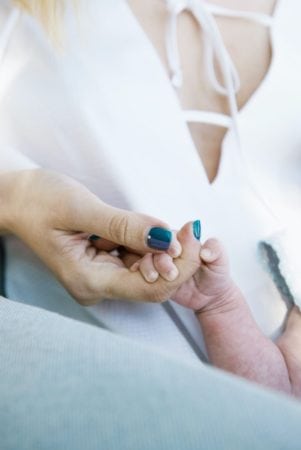
However, as anyone who has been through the experience will tell you, the best laid birth plans can fall apart very quickly as events unfold on the day, and this is particularly true in China. Be prepared to be flexible, and don’t cling to your plan if it is no longer helpful.
After Delivery
Public hospitals will generally want to discharge you as soon as possible, so if all went well with your delivery, you can expect to be home in a couple of days.
If your child is premature or experiences difficulties, this can be frightening, but stay positive. There have been huge advances in neonatal care, and the outcomes for low birth weight babies are usually very good. It’s important to know in advance whether the hospital where you are giving birth offers intensive neonatal care, or whether you will need to transfer to another site.
Sitting the Month
In China there is a unique, but deeply embedded, set of expectations for mother and baby for the first 30 days after birth. It’s called 坐月子 (zuò yuè zi): “Sitting the month”. New mothers are expected not to leave the house, to do no work or exercise, and to eat certain foods. They need to stay warm, avoid fresh air, and have no contact with water… yes, that means no washing or showering, or even cleaning your teeth!
It’s an ancient tradition, dating back over a thousand years, and a well-meaning one. The idea is for women to have a chance to rest and recover after childbirth, to avoid illness, and to stimulate the production of breast milk. If you have Chinese relatives or in-laws, they may apply considerable pressure on you to follow these practices, in the honest belief that you risk causing harm to yourself or your baby if you don’t.
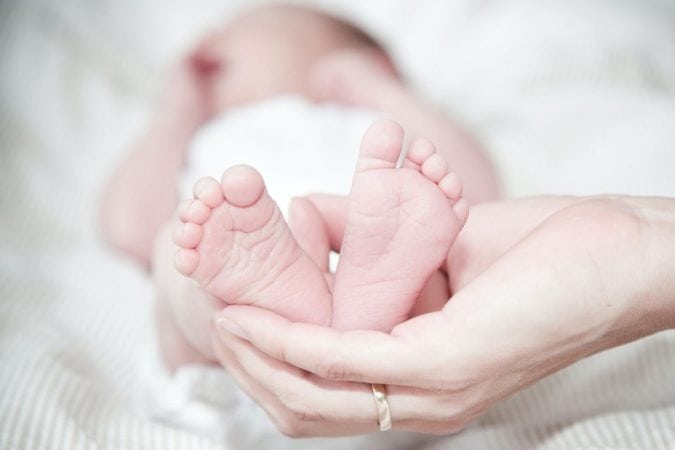
However, for many western women, “sitting the month” can feel oppressive and unhealthy. There are risks associated with it: women have died from heatstroke after wrapping themselves in blankets on hot summer days. The scientific evidence for the benefits of the practice are mixed at best.
On the other hand, returning to your routine too quickly also has risks, and the help from family and neighbours in the first few days can be much appreciated. Younger Chinese women often opt for a less intensive version of zuò yuè zi, resting and eating carefully, but staying clean and turning on the air conditioning when it’s needed.
Whatever you decide to do, be aware that you may face tutting and muttering from the old ladies at the park if you take your child out for some fresh air in the first month!
Breastfeeding
Although one of the purposes of “sitting the month” is to help with milk production, China still has a relatively low percentage of exclusively breastfed babies: under 30 percent, compared to a global average of 43 percent and the government’s target of 50 percent. This has nothing to do with ancient culture, but is largely attributed to aggressive marketing of infant formula by big businesses.
Breastfeeding is one area where the evidence for the benefits of a natural approach is overwhelming and undisputed. If you choose to breastfeed, you will find people generally supportive, and facilities are improving all the time. A doula can support this too, and there are branches of the La Leche League in most major cities.
Documentation
If you’ve just given birth, paperwork is probably the last thing on your mind. But a new baby must be registered within 30 days, or you face a possible fine (and further entanglement with Chinese bureaucracy.)
The hospital will issue you with a birth certificate. Make sure that names on the certificate are written in your home language as well as in Chinese: not only the baby’s, but yours and your partner’s too. This will save enormous amounts of difficulty when it comes to applying for passports.
If your partner is a Chinese national, then your baby will be too. However, China does not recognize dual nationality, so if you apply for a passport for your child from your home country, you are required to formally renounce their Chinese citizenship.
Whatever your child’s nationality, you need to register them with the Public Security Bureau. For this you’ll need their birth certificate and both parents’ passports. Foreign nationals also need to prove that they have applied for a passport for their child. With the correct paperwork, you can easily get a visa and residence permit for the little one.
Maternity Leave
Women in China are guaranteed 98 days’ maternity leave by law. This applies to foreigners too, so if your employer tells you you’re not entitled, it’s worth seeking advice. At present there is no automatic entitlement to paternity leave; fathers/ partners will need to negotiate time off with their employers.
Now, on to You
All this can seem intimidating, and you may have other reasons to fly home for the birth: to be near family for support, or for reasons of nationality. However many women from the international community give birth in China, and for the vast majority it’s a positive experience, part of the rich tapestry of expat life. Whatever you decide to do, here’s wishing you much joy of your happy event!
Please note: The information provided by ExpatDen is not intended to replace or serve as a substitute for medical or healthcare advice. It is strongly recommended that you seek guidance and consultation from a licensed medical practitioner or qualified healthcare professional pertaining to your specific circumstances and healthcare needs.



